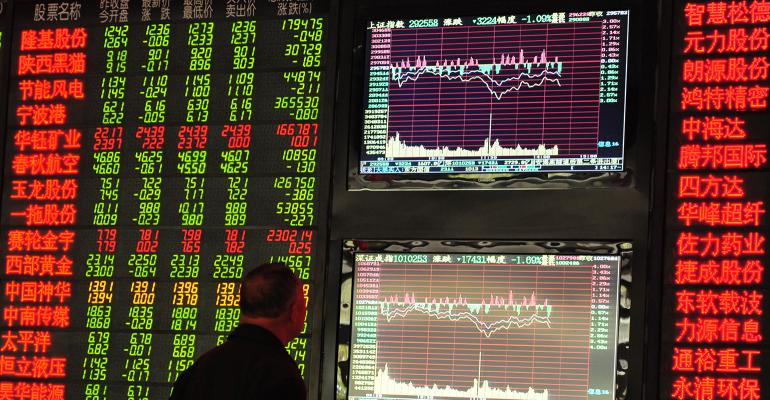By Kathleen Chu
(Bloomberg) --As U.S. stocks rally on optimism Donald Trump’s presidency will be good for growth, hedge fund investor Ronnie Wu is looking on warily.
Wu, who oversees $350 million at Penjing Asset Management Ltd. in Hong Kong, is concerned Trump’s mix of tax cuts, deficit spending and protectionism will hurt trade and spur higher inflation and interest rates, threatening global growth.
And in his search for a haven from the turmoil he sees coming, Wu has lit on an unlikely target: China. Penjing’s $170 million pan-Asia fund of hedge funds will increase its allocation to China to as much as 35 percent from 20 percent, Wu said in an interview.
“China is a very unloved market for the rest of the world,” said Wu. “China is about 20 percent of the world’s market cap, but foreigners basically don’t own anything. That means everyone in the world is underexposed to China.”
Speculation Trump will pursue a pro-growth agenda sparked rallies that drove U.S. equities to records -- with the Dow Jones Industrial Average flirting with 20,000 -- and the dollar to a 14-year high. The MSCI World Index has risen 5 percent since Trump’s unexpected election victory.
Wu says comparisons between Trump and former president Ronald Reagan, who took office in 1981 with pro-growth policies, are off the mark, given near record-high government debt and near record low interest rates.
Economy on Steroids
If “you’re still trying to use the same strategy as the ’80s to jump start the economy, I am very skeptical,” he said. “The economy is already on steroids. If you are talking spending more to create growth and create jobs, I don’t think that’s feasible.”
To increase his exposure to China, Wu is looking to add two or three new hedge funds this year. He is also interested in adding funds in India and Vietnam, where he expects economic reforms to offer investment opportunities. However, finding hedge funds to work with in those countries is difficult as the talent pool isn’t very big, Wu said.
Penjing sees opportunities in technology and retail companies in China that are becoming more competitive to expand aboard, he said.
Penjing’s fund of funds has gained a cumulative 95 percent since inception in April 2005, beating the Eurekahedge Asia Pacific Fund of Fund Index’s 64 percent return and the MSCI Asia-Pacific index’s 83 percent increase.





